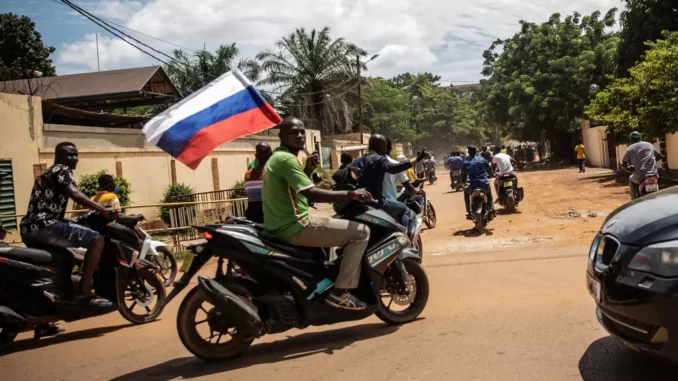
In a strategic push across West Africa, Russia is expanding its influence through humanitarian aid and high-profile partnerships with military-led governments in the Sahel.
Moscow this week announced the delivery of 709.5 tons of humanitarian assistance to Burkina Faso and a shipment of 20,000 tons of wheat to Niger. These acts of “solidarity,” as Russian officials describe them, reflect more than goodwill — they are widely seen as marking a deliberate effort to fill the void left by declining Western aid, particularly from the United States. With USAID’s budget slashed and France’s military expelled from several Sahelian countries, Russia has stepped in. Burkina Faso’s Captain Ibrahim Traoré, a rising figure in the region’s populist, anti-Western shift, has embraced Moscow’s support, seeing it as a path to sovereignty and a break from neo-colonial ties.
Russia’s engagement extends beyond food shipments. It includes security cooperation, mining ventures, and soft-power influence via rebranded Wagner affiliates. In Burkina Faso, Russian flags are increasingly seen at pro-government rallies. Analysts warn that humanitarian aid is becoming a geopolitical tool. As Russia and China offer what they describe as “less conditional” partnerships, African juntas are increasingly turning eastward. For the Kremlin, the Sahel is not just a humanitarian concern — it’s a strategic frontier, rich in resources and ripe with opportunity in a world where influence is measured in grain, not just guns.
